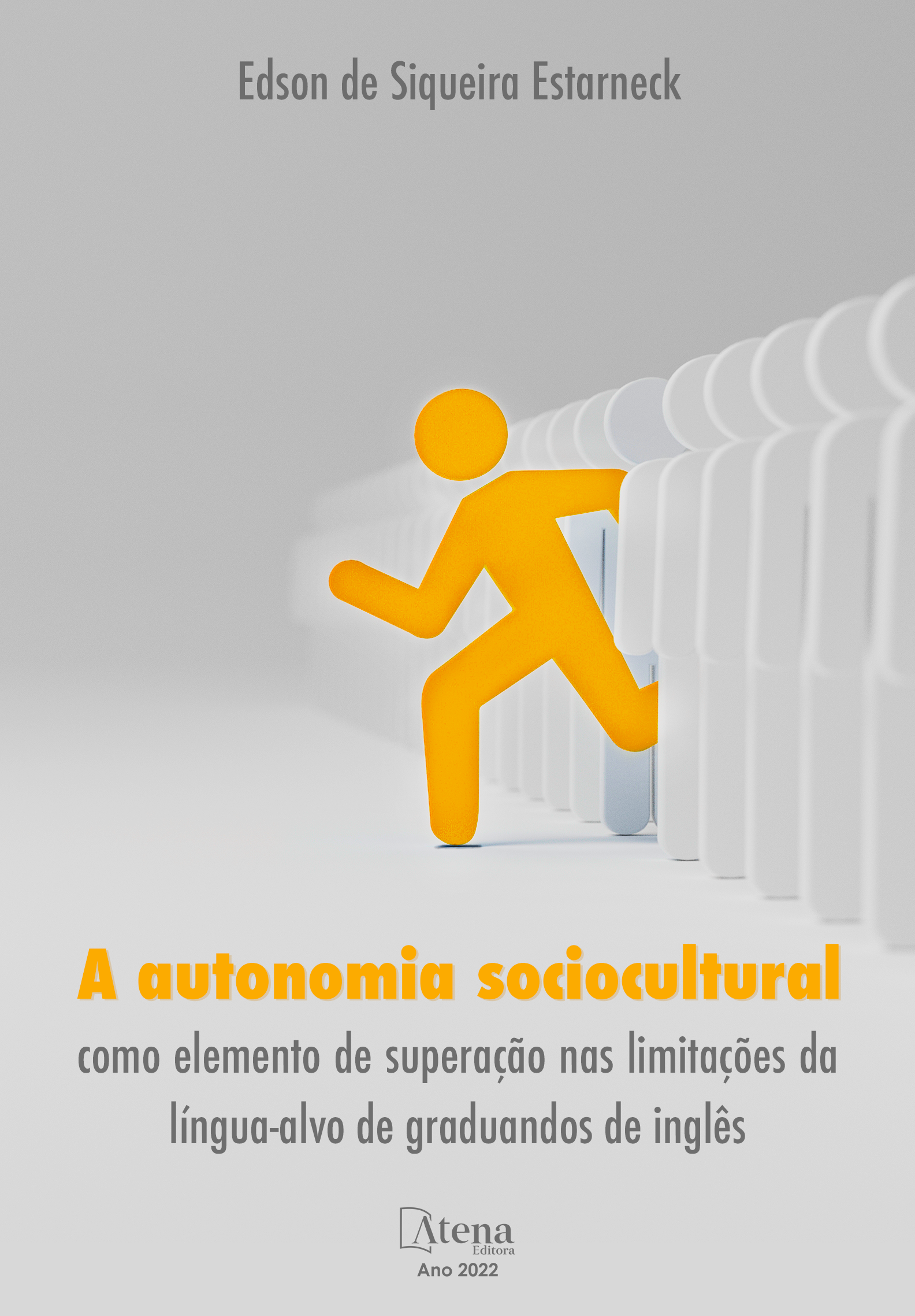
A AUTONOMIA SOCIOCULTURAL COMO ELEMENTO DE SUPERAÇÃO NAS LIMITAÇÕES DA LÍNGUA-ALVO DE GRADUANDOS DE INGLÊS
Esta tese tem como objetivo compreender, sob uma perspectiva sociocultural (OXFORD, 2003), a autonomia (HOLEC, 1979 [1981]; BENSON, 2001, 2006b) de estudantes de graduação que se propõem fazer o curso de Letras Português-Inglês em uma instituição privada na Baixada Fluminense (Rio de Janeiro) sem o letramento da língua inglesa requerido nas ações cotidianas da faculdade. Ela busca expor a base do processo de autonomização relacionada a alguns poucos desses alunos que conseguem progredir ao longo do curso construindo simultaneamente a aprendizagem da língua de estudo, no seu aspecto de uso, e o aprendizado sobre ela, concernente ao conhecimento para a formação de futuros professores de inglês. O trabalho, com base em pesquisa narrativa (BELL, 2002; BARCELOS, 2006; BASTOS; SANTOS, 2013; BARKHUIZEN; BENSON; CHICK, 2014; SWAIN; KINNEAR; STEINMAN, 2015), foca nas histórias dos participantes selecionados e nas elucidações que são trazidas por elas ao relacionar autonomia tanto no aspecto da motivação e da identidade dos sujeitos quanto na dinâmica de um sistema que interconecta estes (e outros) elementos, a fim de que aprendizes autônomos no processo de superação se mantenham em sua trajetória de formação na graduação. A pesquisa, portanto, se apoia também em teorias que contemplam as complexidades (LARSEN-FREEMAN, 1997; LARSEN-FREEMAN; CAMERON, 2008; PAIVA, 2005, 2006; KING, 2016; VAN LIER, 2004; MERCER, 2014a, 2014b, 2015a, 2015b, 2016) como base teórico-metodológica. Ela explicita uma compreensão da autonomia marcada no indivíduo que vai além da dicotomia simplista social/individual e se apoia na perspectiva da realidade complexa que funde originalmente essa polarização à luz da visão sociocultural de Vygotsky (1978 [1991]) e da teoria enunciativa de Bakhtin (1929 [2006], 1979 [1997]). Como resultado da investigação, compreende-se a autonomia pela perspectiva corporificada do ‘eu’ no sujeito, que embora seja múltiplo em diversas personificações, é unificado pela contribuição do ‘eu autônomo’, como avaliador atual das experiências imaginadas de futuro e daquelas marcadas histórico-culturalmente no sistema do ser.
A AUTONOMIA SOCIOCULTURAL COMO ELEMENTO DE SUPERAÇÃO NAS LIMITAÇÕES DA LÍNGUA-ALVO DE GRADUANDOS DE INGLÊS
-
DOI: 10.22533/at.ed.401222906
-
Palavras-chave: Autonomia sociocultural. Identidade. Motivação. Aprendizagem de língua inglesa. Narrativa.
-
Keywords: Sociocultural autonomy. Identity. Motivation. English language learning. Narrative.
-
Abstract:
This thesis aims to understand, through the sociocultural perspective (OXFORD, 2003), the autonomy (HOLEC, 1979 [1981]; BENSON, 2001, 2006b) of undergraduate students at the Faculty of Languages Portuguese-English in a private university in Baixada Fluminense (Rio de Janeiro) who lack the proper English literacy required for day-to-day interactions in the program. It searches for presenting the basis of the autonomous process related to few of those students who manage to progress in the program when they not only learn the target language itself, in the aspect of use, but also gain knowledge for their development as future English teachers. This work, based on narrative inquiry (BELL, 2002; BARCELOS, 2006; BASTOS; SANTOS, 2013; BARKHUIZEN; BENSON; CHICK, 2014; SWAIN; KINNEAR; STEINMAN, 2015), focuses on the selected participants’ histories and on their clarification that relate autonomy not only to aspects of motivation and identities but also to the dynamics of a system which interconnects them (and other elements), so that autonomous learners in their overcoming process keep on track until graduation. The research therefore also leans on complexities theories (LARSEN-FREEMAN, 1997; LARSEN-FREEMAN; CAMERON, 2008; PAIVA, 2005, 2006; KING, 2016; VAN LIER, 2004; MERCER, 2014a, 2014b, 2015a, 2015b, 2016) as a theoretical and methodological foundation. It exposes an understanding of autonomy which goes beyond the simplistic social-individual dichotomy, and relies on the complex perspective which originally fuses such polarization in the light of Vygotsky’s sociocultural perspective (1978 [1991]) and Bakhtin’s theory of utterance (1929 [2006], 1979 [1997]). In the research findings, autonomy is understood as one’s embodied ‘self’ in the individual, yet multiple in many personifications. It is unified by the contribution of the ‘autonomous self’, which plays the role of evaluating experiences as one’s imagined future and those as one’s historical-sociocultural background represented in the self-system.
-
Número de páginas: 198
- Edson de Siqueira Estarneck


